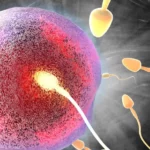Blog Post
The untold triumph and tragedy of Ireland’s fight to defend the unborn
The first review of my new book Patriots: The Untold Story of Ireland’s Pro-Life Movement is out, written by John Jalsevac for LifeSiteNews. The review is brilliantly written. Check it out!
The untold triumph and tragedy of Ireland’s fight to defend the unborn
By John Jalsevac
There’s a powerful moment in Patriots, Jonathon van Maren’s brilliant new book about the Irish pro-life movement’s decades-long battle to keep the Emerald Isle abortion-free.
The date is May 24, 2018 — the vigil of the referendum on the Eighth Amendment to the Irish Constitution. This amendment, passed by popular vote in 1983, explicitly recognized the right to life of the unborn. It was the bulwark that kept abortion from Ireland’s shores for decades, even as nearly every other Western nation fell to the abortion regime. But on this day in 2018, it was hanging by a thread.
It is late at night, and a group of sleep-deprived pro-lifers has gathered for drinks at a pub in Dublin, around the corner from their headquarters. The preceding months have been consumed by an exhausting, all-out effort to counter the tsunami of propaganda, lies, money, and power — all in support of abortion — sweeping their nation. Ireland’s pro-lifers have left everything on the mat. Many of them have taken leaves of absence from work, or skipped a semester of school, just in order to be able to volunteer full time for the cause.
But on this night, with the vote scheduled for the following day, there is nothing else to be done. After having traveled to hundreds of towns and cities, distributed hundreds of thousands of pieces of literature, knocked on tens of thousands of doors, debated with countless voters on the streets, and protested and strategized and polled and marketed and lobbied using every technique that had proved successful over the past 3 1/2 decades … all that is left now is the waiting. The question on everybody’s mind is: Has it been enough? When the dust settles tomorrow night, will Ireland still be a pro-life nation?
Van Maren’s description of the scene is chilling:
Despite the hopefulness, everybody was tense. If pro-life Ireland would come through once again and victory awaited on the other side of the night, then everybody wanted to fast-forward to that moment of exquisite relief and jubilation. But if not — if May 25 would bring the devastating news that the Ireland they all loved so much no longer existed, and that the Irish people would be the first to bring in abortion by popular demand — then this night could last forever. Here, in this moment, everything was still as it should be. Babies in the womb were protected, Ireland was one of the only pro-life nations in the Western world, and being Irish still meant something profoundly beautiful. Here, on this island of sanity surrounded by those who had sacrificed weeks, months, and years to pour out their hearts for Ireland’s children, was laughter and camaraderie. On the other side lay a new era of unthinkable and unknowable darkness. It was Schrodinger’s Ireland: Nobody knew if she was alive, or dead — and nobody knew if they wanted to know.
Unfortunately, we now know what they, on that night, did not. The Ireland that had served as a beacon of hope for every pro-life activist the world over, the Ireland that had proved by its rock-bottom maternal mortality rate that abortion was completely unnecessary to protect women’s health, had indeed died. On May 25, 2018, Ireland’s Day of Infamy, the Irish people voted by a staggering margin, 66 percent to 33 percent, to bury the Eighth Amendment, paving the way for a permissive regime of abortion-on-demand.
Judged solely by May 25, 2018, the Irish pro-life movement was a failure. And indeed, there is a sense in which that is the grim, undeniable truth. And yet, what Van Maren has accomplished in this book is to place that one, fateful failure within the context of a much larger story — a story that includes such a litany of near-miraculous success, success obtained and maintained through such a mixture of conviction, creativity, and sheer, dogged, daily sacrifice, that the effect is that one closes the book astonished and grateful that such a thing could ever be, and inspired to do homage to Ireland’s indomitable pro-life warriors by imitating their example in whatever way possible.
Truth be told, I was hesitant even to read this book. Having been brought up in the pro-life movement, and having worked in it for so long, it sometimes seems to me that there is little I could possibly read about it that would surprise me, or move me, or provide much in the way of new information. Besides anticipating a certain measure of boredom, I was little inclined to read a book that I already knew ended in a depressing defeat.
How wrong I was.
Van Maren is a Canadian pro-life activist who flew to Ireland in the weeks before the May 25 vote to witness and participate in the pro-life effort. However, his descriptions of the campaign to “Save the Eighth” only occupies the final third of the book. In the rest, he recounts the history and paints a portrait of a pro-life movement that operated on such a vast scale, and with so many triumphs over the years, and that enjoyed such widespread public sympathy, that most of us who have lived our lives in nations where abortion was legalized decades ago can scarcely even begin to imagine what that might even look or feel like.
This aspect of the book alone is worth the price of admission. For, even though the pro-life side ultimately lost, what emerges from Van Maren’s telling is a compelling picture of a modern, Western nation in which, until quite recently, the mere thought of legalized abortion was inconceivable to most of its residents, and in which, as a consequence, the pro-life cause and movement enjoyed enormous popularity and political power. And if this could exist once, then why not again?
Truth be told, most of us have been so steeped in media propaganda to the effect that being modern means legalized abortion, that we have unconsciously come to believe that maybe it is so: maybe, just maybe, being a healthy, wealthy, modern, and developed nation just is, for some unknown reason, inconceivable without legalized abortion. Maybe we pro-lifers are simply tilting at progress in our effort to keep child-killing at bay.
But what Ireland and Ireland’s sophisticated pro-life movement proved for so many decades is that this simply isn’t true. In vote after vote, in poll after poll, the Irish people again and again reaffirmed their conviction that they could do perfectly well without abortion. Even as Ireland thrived economically and socially, standing with head held high amid other world-class nations, her politicians, experts and citizens spurned foreign pressure to “get with the program” and legalize abortion.
The effect of Van Maren’s recounting of Ireland’s pro-life history is to elicit this exceedingly encouraging thought: if Ireland could do this, then we can do this. Ireland once showed us what was possible. And if she showed us once, she can show us again. And if not her, then some other nation, with sufficiently motivated and savvy and committed pro-lifers, who can carry the torch. Perhaps our nation.
This is the spirit of vigor and optimism that infuses Van Maren’s narrative. Van Maren is one of those pro-life activists for whom abortion is no abstraction. He has held the battered bodies of babies who have been aborted in his hands. He has no doubt of the righteousness of the pro-life cause. Furthermore, being a foreigner, Van Maren is free of the need to feign humility with respect to the accomplishments of the Irish pro-life movement. The result is that he conveys a sense of the life-and-death urgency of the cause, as well as the brilliance of the Irish pro-lifers who successfully kept at bay the international abortion juggernaut, that is bracing and deeply inspiring.
As Van Maren recounts in the introduction, as he worked alongside the Irish pro-lifers in 2018, it seemed to him that there was something different about them. He concluded that the difference was their “innocence.” “Not naivete, not at all — they certainly knew that they could lose the referendum.” But,
It was the sort of innocence one has when they possess both the courage to fight evil and the faith that good can defeat it. More than that, it was the faith that good could defeat evil again. Abortion activists had been striving to destroy and undermine the Eight Amendment for decades, but always the pro-life movement had fended them off. Time and again, the sweaty panic of the final countdown to the campaign’s end had given way to an explosion of celebration. … This time, it had to be that way, too. The dragon had to die, the knight had to win, and the innocents had to be saved.
Alas, that is not how things turned out on May 25, 2018. That day began a tragic new era in Irish history. To the many pro-life Irish who had in some cases dedicated their whole lives to keep Ireland abortion-free, it seemed as if that day the Ireland they knew died. It is not hard to pinpoint reasons for the change of fortune: the existence of a media class that had become almost universally pro-abortion, and that flagrantly and tirelessly campaigned to repeal the Eighth, and that had no qualms about distorting and outright lying to accomplish that end; a Catholic Church that entered (or, alas, in many cases, did not enter) the fray bruised and bloodied by scandals, and consequently lacking in moral authority; and incessant pressure from the powerful globalist community on Ireland to conform, etc.
Van Maren recounts and analyzes all of this, and much of what he tells is enough to make one’s blood boil. It seems certain that without the incessant drip-drip-drip of shameless media distortion and foreign pressure, May 25, 2018 could very well have turned out otherwise than it did. So much for democracy; so much for Irish independence, earned at the cost of the blood of so many patriots; so much for media objectivity; so much for truth, and human rights, and compassion.
But in the end, the value of Van Maren’s book is in telling the story of Irish pro-life heroism. Conservatives are not always very good at telling our own stories. Liberals are often far better at that. Most pro-lifers don’t like blowing their own horn. We value humility. But this can be taken too far, if it buries the heroism that has the power to inspire others to pick up the torch and fight for justice. Even if Van Maren’s book does nothing else but celebrate and honor the sacrifices of so many unsung heroes, and inspire but a handful of others to imitate their example, it will have been worth all the effort.
I will conclude — as does Jonathon — with this quote from one of those Irish heroes, Niamh Uí Bhriain. Abortion might now be “the new reality in this new, harsh, pitiless Ireland,” she said in the wake of the 2018 vote. “But that is not my country. As the actor John Connors said, May 25th was the most shameful day in Irish history — but it is not our shame, because we did not vote for this. Instead, that shame should be felt by (Minister for Health) Simon Harris, by (Taoiseach) Leo Varadkar, by the Irish media, and by those who were too cruel or too foolish to know that the only compassionate answer is to love both mother and child. This cruel abortion regime is a stain on what was once a proud, pro-life nation. Time, and the persistence of the few, will change that once more.”
Note: 100 percent of the profits from the sale of Patriots will be donated to pro-life groups. To purchase Patriots, click here if you’re in North America, and here if you’re in Europe.








